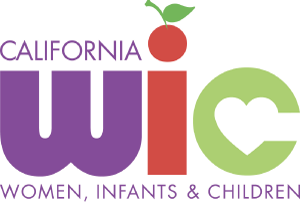
Naturally! Naturally you want your baby to be born healthy. And most babies are!
Keep these things in mind to protect yourself and your unborn baby.
Complications The greatest risks for complications happen from the 4th week to the 14th week of a woman’s pregnancy. But most women don’t learn they’re pregnant until about 8 weeks after the date of their last menstrual period.
If you don’t know you’re pregnant until you’re 8 weeks along, your unborn baby could already have a problem. That’s why it’s so important to make healthy choices when you’re planning to become pregnant.
Unplanned pregnancies Many women are surprised to learn they’re pregnant! But if they’ve already made healthy choices for themselves, their babies will have a much better chance of being born healthy.
Birth defects Sometimes a baby is born with a birth defect. A birth defect is a problem that starts happening while the baby is growing in the mother’s body. Most birth defects happen during the first 3 months of pregnancy.
There are a number of different birth defects. These are some:
• cleft lip
• cleft palate
• neural tube defects
• heart defects (congenital heart defects)
• fetal alcohol syndrome
Other problems Birth defects aren’t the only problems. Others are
• premature birth
• low birthweight
• stillbirth
Health care providers There are several kinds of health care providers for pregnant women. You can visit any of them to talk about pregnancy and your baby. Your health care provider can be: an obstetrician (a doctor), a family practice doctor, a certified nurse-midwife, a family nurse practitioner, or a women’s health nurse practitioner.
Checkups before pregnancy Are you thinking about becoming pregnant? Are you planning to become pregnant? Then schedule a preconception checkup. During this visit, your doctor will check to make sure you’re healthy. This is important for you and for your baby. Read about “preconception checkups” here>>
Checkups during pregnancy Your prenatal checkups are very important. Your health care provider will check on you and your baby to make sure both of you are healthy. This is a good time to ask your health care provider any questions about pregnancy and your baby. Read more about “prenatal checkups” here>>
Dangers of smoking If you smoke during the month before you get pregnant and throughout your pregnancy, you are increasing the risks to the baby of:
• miscarriage
• stillbirth
• prematurity
• low birthweight
• birth defects, such as cleft lip, cleft palate, or both
• Sudden Infant Death Syndrome (SIDS)
• infant death
Quit smoking before you get pregnant. This is best. However, if you are already pregnant, quit as soon as possible. You can still help protect your baby and yourself against health problems.
Dangers of drinking alcohol If you are pregnant, you should not drink alcohol at any time during your pregnancy. You also should not drink alcohol if you are trying to get pregnant.
Alcohol in your blood passes to the baby through the umbilical cord. If you drink alcohol, your baby drinks alcohol.
Drinking alcohol can cause your baby to be born with fetal alcohol spectrum disorders (FASDs). These are serious problems. Drinking alcohol during pregnancy can also cause miscarriage, stillbirth, prematurity, low birthweight and infant death. Read more about dangers of drinking alcohol and how to get help here>>
Dangers of using street drugs Street drugs are bad for you, and they’re bad for your baby.
Some street drugs are:
• Cocaine
• Ecstasy, methamphetamine and other club drugs
• Heroin
• Marijuana
• Prescription drugs that your health care provider did not prescribe for you
In some states it is legal to use marijuana. But if you use marijuana when you are pregnant, your baby’s brain may not develop properly.
Street drugs can lead to many problems for the baby before he is born and after he is born. These are just a few of the possible problems: miscarriage, stillbirth, premature birth, low birthweight and birth defects. Read more about the dangers of using street drugs here>>
Foods to avoid Don’t eat these foods when you’re pregnant:
• raw meat or raw fish
• raw eggs
• milk and juice that aren’t pasteurized
• fish that has lots of mercury, which could hurt your baby: tilefish from the Gulf of Mexico, swordfish, shark, and king mackerel.
Cooking and pasteurizing kill dangerous germs. Raw meat, fish and eggs, and milk and juice that aren’t pasteurized may have dangerous germs. If you eat foods that have dangerous germs, you can get very sick. And you may pass these germs to your baby.
Medicines to avoid Some medicines you take are safe for your baby, but other medicines could hurt your baby. Tell your doctor or other health care provider about all the medicines you take. She will tell you which medicines are safe to take when you are pregnant. Never take any medicine when you’re pregnant unless your doctor says it’s safe.
Stress Everyone has stress. A small amount of stress is fine. But when you are pregnant, a high level of stress is bad for you and your baby. Look for ways to lower your stress. These may help:
• Go to all your checkups so you know how you and your baby are doing.
• Get some kind of exercise every day.
• Rest when you can, and get lots of sleep at night.
• Ask family members or friends to help you with household chores, errands and caring for your kids.
• Talk with a counselor about ways to reduce your stress.
Dangers of lead It is easy for a woman to end up with too much lead in her body. You may not realize you are breathing lead or eating lead. The lead in your body can pass to your unborn baby.
Too much lead in your body can:
• put you at risk for miscarriage.
• cause your baby to be born too early or too small.
• hurt your baby’s brain, kidneys, and nervous system.
• cause your child to have learning or behavior problems.
What can you do about lead? Read more about the dangers of lead here>>
Germs and infections Watch out for germs and infections. Some infections will make you very uncomfortable but not harm your unborn baby. Other infections can harm your baby.
If you are infected, you can pass many infections to your unborn baby. Some of these infections are bacterial vaginosis, Hepatitis B, the flu and sexually transmitted infections (STIs). There are many more.
You can protect yourself and your unborn baby. Start by asking your health care provider what shots you may need to fight diseases like chickenpox and measles. Make sure to get your flu shot, and ask your doctor about the pertussis shot. Read more here about infections and how to protect yourself and your baby>>
Dangerous chemicals Stay away from harmful chemicals. These are bad for you and your baby:
• Cigarette smoke
• Paint and paint thinner
• Bug spray and weed killer
• Liquids with strong smells, like turpentine
• Chemicals in anything plastic that has the number “7” on the bottom
Here’s what you can do: Don’t smoke, and ask other people not to smoke near you. Wear gloves or a face mask if you have to work with strong chemicals. Look at things made from plastic, and don’t use anything that has the number “7” on the bottom.
X-rays Tell your doctor and dentist that you are pregnant before you get an X-ray.
Partner abuse Get help if your partner is abusing you! If he is hitting or kicking or pushing you, it is not OK. If he is yelling, scaring you or calling you names, it is not OK. He could hurt you and your baby even more.
Tell someone! Tell a friend or a doctor or someone at your WIC center. Find another place to stay, such as a friend’s home or a women’s shelter. Call the free National Domestic Violence Hotline at (800) 799-7233 or phone 211.


